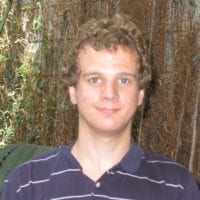
RNA-seq Assembly of Transcriptomes in Various Tissues Collected from Solanum habrochaites, S. lycopersicum, S. pennellii, S. pimpinellifollium and Introgression Line 4-3
With the advent of high throughput nucleotide sequencing, genomics and transcriptomics have become prolifically important topics in the field of molecular biology. Through the study of an organism’s transcriptome, scientists can gain deep insight into how genes are expressed in different tissues or under certain conditions. Understanding gene expression is important for understanding how they relate to traits such as disease or drought resistance which may be important in agriculture or industry. There are challenges, however, in assembling and analyzing the large sets of data produced by these next generation sequencing processes, creating demand for bioinformatic techniques. In this study, transcriptomic data in various tissues from S. habrochaites, S. lycopersicum, S. pennellii, S. pimpinellifolium and the introgression line were processed, mapped to the S. lycopersicum genome, and then analyzed for differential expression, single nucleotide polymorphisms (SNP), insertions, and deletion. To this end, a variety of software packages were used, including fastx-toolkit, the Tuxedo Suite, samtools, snpEff and bcftools in addition to scripts developed within BTI. The ultimate goal for this data is to bring it to a point where it can be loaded into an interface like GBrowse where it can be viewed by biologists who may be interested in studying differential expression between these tomato species or samples.
My Experience
In this internship I gained experience with a wide set of bioinformatic tools, as well as coding and web-developing techniques not directly related to biology. Although I was working with tomato data, the techniques I used, which were mostly for assembly and analysis of transcriptomes, are applicable to a wide spectrum of organisms and model systems. The faculty I worked with was very helpful and helped clear up any questions I may have had. Although I probably won’t go directly into bioinformatics as my major field, I believe the skills I’ve gained will help me greatly in my studies of biochemistry in grad school and onwards.
